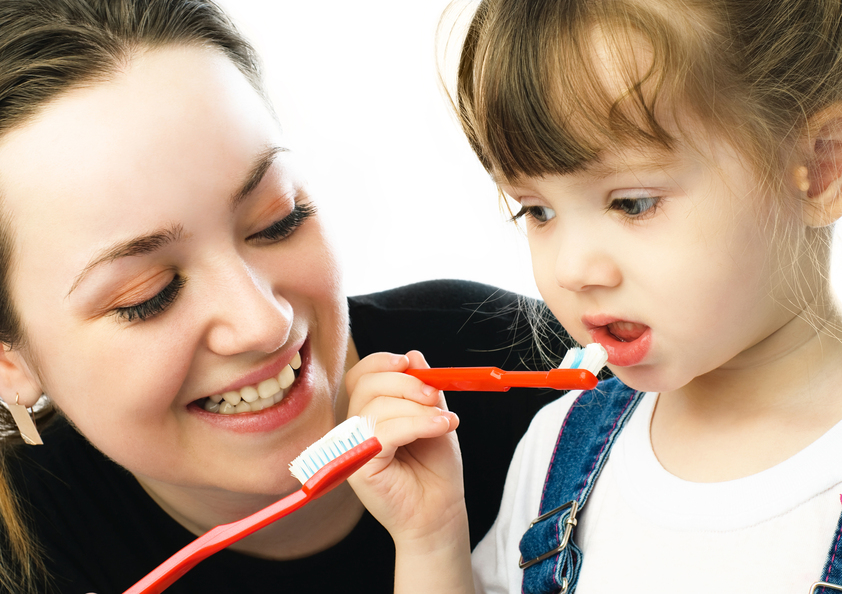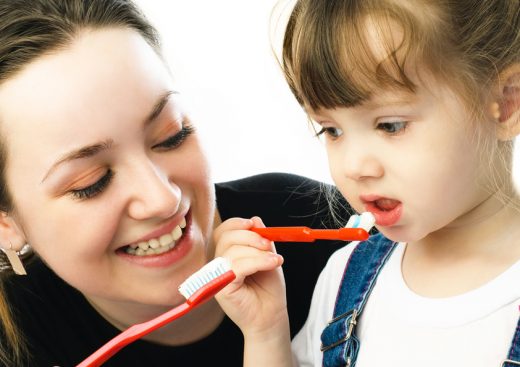
Your 2-year-old swoops in to kiss you, but their breath smells like they’ve been sucking on dirty gym socks. How did they get such halitosis? They don’t even drink coffee yet.
If your toddler has a nasty case of a potty mouth, not in what they say but how their oral cavity smells, take heed. Most cases of bad breath in children stem from poor hygiene or diet, but underlying health conditions can also play a role. Here’s what you need to know — as well as how to solve the problem.
What Causes Bad Breath? Why Do Toddlers Get It?
Multiple factors cause bad breath in adults and children alike. Who hasn’t heard the advice to avoid eating Italian food on a date? The warning extends beyond spilling spaghetti sauce on your dress shirt. Who wants to have their first kiss marred by garlic? Mints and sprays only mask the problem temporarily as the odor lingers until your body fully digests your meal.
Strongly scented foods are a clear cause of dragon breath, but other factors also contribute. Poor oral hygiene can pose a problem. Children can rush through brushing, leaving food particles trapped between their teeth. Bacteria flourish from this banquet, and as a result, your little angel’s exhales may smell like they originated in Hades.
Underlying health conditions can also cause funky breath. For example, people with unmanaged diabetes can develop dangerous ketoacidosis, which produces a fruity odor. Children with upper respiratory infections can develop a post-nasal drip, which leaves their mouth smelling ripe. Some medications, likewise, create dry mouth. When you don’t generate sufficient levels of saliva, you have no natural lubricant to wash away germs, leaving you stinky.
Your first step in the battle against funky toddler breath should consist of looking at their diet and hygiene. However, if these measures fail, a call to their physician is in order. While no one wants their baby to get sick, seeking early treatment can lead to better long-term health outcomes.
Combatting Funky Breath in Toddlers
What should you do if your little one roars like the dragon in “Shrek?” Start with proven home remedies, then seek outside help if the problem persists.
1. Teach Them to Brush and Floss
It isn’t enough to hand your toddler a toothbrush and tell them to go to town. Proper oral care is a lot like handwashing — a cursory rinse won’t do much. Brush your teeth with your kids as you show them the right techniques. Instruct them to pay special attention to the sides and back of their mouth, not only their incisors.
Teaching kids to floss can prove trickier — be patient. After all, only four out of ten adults floss daily as they should, so it’s not fair to blame your little one for balking. Use wide, tape-style products to avoid cutting delicate gums, and consider a water flosser if your child is particularly sensitive.
2. Unplug Their Wee Noses
When your kid gets sick, they become what Eleven of “Stranger Things” fame would call mouth-breathers. This method of breathing helps them get needed oxygen, but it dries up their saliva, allowing bacteria to flourish. It’s spring, and if your little ones have allergies, you might notice their breath gets worse as the weather warms.
While you need to take care when using medication with little ones, you can safely unclog a stuffy nose with a natural saline nasal spray. You can also use steam or a humidifier to moisten dry passages and make breathing more comfortable. Avoid medicated versions and warn older kids against their use. These provide temporary relief by shrinking swollen nasal passages, but they create a rebound effect that can leave you hooked on their use in days.
3. Keep the Water Flowing
Dehydration can lead to halitosis because without water, your toddler can’t produce saliva. While the amount of H20 your tyke needs varies based on their activity level, a wise rule of thumb is one eight-ounce glass for each year of their age daily until they turn nine. Stay away from sugary juices and sodas, though — cavity-causing bacteria feast on the simple sugars in such beverages.
4. Cut Down on the Junk Food
Foods like potato chips and crackers can get stuck in between teeth and in the grooves of molars. When bacteria go to town, they produce a stench while they dig trenches in teeth. To cut down on cavities, reduce your child’s consumption of junk food. Crunchy fruits and vegetables like carrots and apples make wise snack choices as the fiber scrubs debris from tooth surfaces.
5. Take Them to the Dentist
Even when your child brushes regularly, they can develop plaque. This buildup can lead to periodontal disease as well as raising a stink. You should take your kid to a dentist by the time they turn one or when they get their first tooth — whichever comes first.
6. Call Your Family Physician
Finally, if holistic treatments don’t resolve your toddler’s dragon breath, give your family physician a call. An underlying health condition might be to blame, and early treatment leads to more positive outcomes.
Treat Your Toddler’s Funky Breath and Keep Them Healthy
Chances are, your toddler’s funky breath indicates nothing more than a need to eat more healthfully or spend more time brushing. Once you identify the cause, you can delight when your baby smothers you in kisses.



